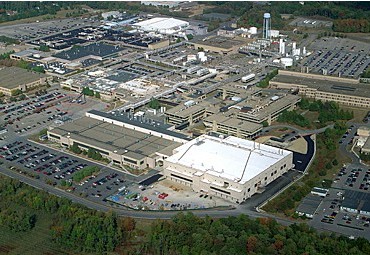First X86 Servers, Now IBM Wants Out Of Chips?

IBM may be looking to part ways with its semiconductor manufacturing business. Citing a person familiar with the matter, the Wall Street Journal reports that IBM is considering selling off its manufacturing operations, but would retain its chip design capability.
The company is believed to have hired investment bank Goldman Sachs to seek out potential buyers, but according to a source cited by the Financial Times, IBM is exploring other options as well, such as turning the operations into a joint venture. No sales price has been disclosed.
News of the potential divestment comes just two weeks after IBM agreed to sell its X86 server business and related maintenance services to Lenovo for $2.3 billion. Adalio Sanchez, general manager of the System x division, talked with EnterpriseTech recently to explain the deal and what it means to customers.
The move would be a big departure for IBM. Owning its own semiconductor operations is a big part of IBM's brand, but making chips isn't cheap. The fabrication business is capital-intensive, requiring pricey equipment, which must be updated regularly in order to accommodate each successive generation of chip manufacturing technology. The company has spent billions over the years to develop and maintain competitive manufacturing capabilities, and the endeavor gets more expensive as Moore's Law loses ground.
The cost of building modern fabrication plants also limits the pool of potential buyers. The short list includes GlobalFoundries (which began life as an AMD spinoff) and Taiwan Semiconductor Manufacturing Corp (TSMC), as well as rivals Samsung and Intel.
Analysts are split when it comes to whether IBM should exit chip making, considering the unit has led to some of IBM's most successful endeavors. Experts point to the strengths of the Power chip architecture, even though the X86 architecture has come to dominate the datacenter space. Also, the AI-darling Watson owes much of its natural language processing smarts to IBM's Power chips – specifically, the high memory bandwidth that the Power7 and Power7+ chips afford. That said, IBM has tuned up the Watson software and can get by on a lot less iron than it took to play Jeopardy! and significantly, there is nothing inherent in the Watson software stack that needs a Power chip. The difficulty for IBM is that the design and manufacture of its Power and System z mainframe processors are closely tied, and it may have to pay significantly more for contract manufacturing services for those low-volume, high-complexity processors. IBM stayed in the foundry business all these years to avoid that problem.
In recent years, however, IBM has increasingly emphasized its software and services, and its chip biz has lost significance accordingly. Chips and computer hardware comprised only 16 percent of revenues and 11 percent of operating profits last year, and the number keeps falling since IBM lost out to AMD for the latest round of game consoles and ARM gets more traction in the embedded markets. IBM has licensed ARM technology to try to compete, offering itself up as a foundry for others.
The bottom line is that selling off its manufacturing operations could help IBM meet profitability targets. Financial analyst firm Sanford C. Bernstein cited by the Journal estimates that IBM's microelectronics unit "generated about $1.75 billion in revenue last year, while losing $130 million in pretax income." The firm expects this revenue to fall to $1.45 billion in revenue in 2014, while the pre-tax losses of $130 million stay consistent.
Related
With over a decade’s experience covering the HPC space, Tiffany Trader is one of the preeminent voices reporting on advanced scale computing today.











